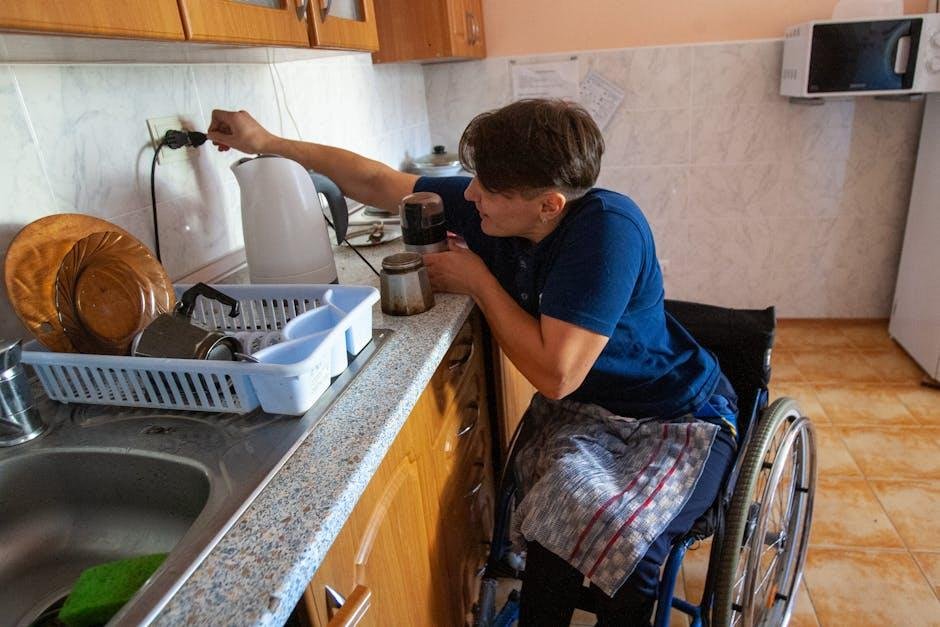In the intricate tapestry of well-being, gratitude weaves a subtle yet profound thread. Often dismissed as a simple courtesy or fleeting emotion, gratitude is increasingly recognized as a powerful catalyst for health—both mental and physical. From quiet moments of reflection to the ripple effects in our relationships, the practice of appreciating what we have may hold unexpected keys to resilience, healing, and longevity. This article explores the multifaceted role of gratitude in health, uncovering how an age-old human virtue could be a modern prescription for a better life.
Table of Contents
- The Science Behind Gratitude and Its Impact on Wellbeing
- How Gratitude Shapes Mental Health and Emotional Resilience
- The Connection Between Gratitude and Physical Health Improvements
- Incorporating Gratitude Practices into Daily Life for Lasting Benefits
- Gratitude as a Tool for Stress Reduction and Better Sleep
- Practical Strategies to Cultivate Gratitude in Challenging Times
- Q&A
- Concluding Remarks

The Science Behind Gratitude and Its Impact on Wellbeing
Scientific research increasingly confirms that gratitude is more than just a fleeting feeling; it acts as a powerful tool that rewires our brain for positivity and resilience. When we consciously practice gratitude, our brain releases neurochemicals such as dopamine and serotonin, often dubbed the “feel-good” neurotransmitters. These chemicals enhance our mood, sharpen emotional regulation, and even bolster the immune system. Moreover, gratitude activates areas like the prefrontal cortex, responsible for decision-making and social behavior, enabling us to better manage stress and cultivate healthier relationships.
Key health benefits associated with regular gratitude practice include:
- Reduced levels of cortisol, the stress hormone
- Improved sleep quality and duration
- Lower blood pressure and enhanced heart health
- Stronger immune response and faster recovery times
- Heightened sense of life satisfaction and decreased symptoms of depression
| Health Aspect | Gratitude Impact | Scientific Explanation |
|---|---|---|
| Stress Management | Significantly Reduced | Decreases cortisol levels, calming nervous system |
| Sleep | Improved Quality | Enhances relaxation, reduces negative thoughts |
| Cardiovascular Health | Enhanced | Lowers blood pressure and promotes heart rate variability |

How Gratitude Shapes Mental Health and Emotional Resilience
Gratitude acts as a powerful catalyst for enhancing mental well-being by shifting focus from negative thoughts to positive experiences. This mindset shift encourages the brain to rewire itself, fostering optimism and a greater sense of emotional balance. Regularly acknowledging the good in life can reduce symptoms of anxiety and depression, making everyday challenges feel more manageable. Practicing gratitude helps to cultivate a mental environment where resilience can thrive, allowing individuals to bounce back more quickly from setbacks and maintain a stronger emotional core during turbulent times.
Developing gratitude also nurtures essential psychological resources, which include:
- Mindfulness: Heightening awareness of present blessings heightens alertness to life’s small joys.
- Empathy: Increased appreciation helps build stronger social connections by recognizing others’ positive impacts.
- Self-worth: Feeling grateful promotes a healthier self-view and reduces feelings of envy or resentment.
| Mental Health Benefit | Gratitude’s Influence |
|---|---|
| Stress Reduction | Encourages positive reframing of difficult experiences |
| Emotional Stability | Fosters consistent feelings of happiness and contentment |
| Improved Sleep | Calms the mind by reducing worry and rumination |

The Connection Between Gratitude and Physical Health Improvements
Numerous studies have demonstrated that cultivating a mindset of gratitude can lead to measurable improvements in physical health. When individuals regularly express thankfulness, their bodies often respond with lower levels of stress hormones like cortisol, which helps reduce inflammation and boosts immune function. This biological shift not only strengthens the body’s defenses against illness but also fosters quicker recovery times from injuries or ailments. Additionally, grateful people tend to engage in healthier behaviors such as improved sleep patterns, more consistent exercise, and better dietary choices, all of which synergistically contribute to overall well-being.
Here’s a snapshot of some key health benefits linked to gratitude practices:
- Enhanced cardiovascular health: Reduced blood pressure and heart rate variability
- Improved immune response: Greater resistance to infections and faster healing
- Better quality sleep: Longer duration and deeper rest patterns
- Lower stress levels: Decreased anxiety and depression symptoms
| Benefit | Physical Impact | Example |
|---|---|---|
| Reduced Inflammation | Lower cortisol levels | Less chronic pain |
| Improved Heart Health | Stable blood pressure | Decreased risk of heart disease |
| Enhanced Immune Function | Increased white blood cell activity | Fewer colds and flu episodes |

Incorporating Gratitude Practices into Daily Life for Lasting Benefits
Integrating gratitude practices into your daily routine can be a transformative exercise that nurtures both mind and body. Start small by dedicating a few minutes each morning or evening to acknowledge things you are truly thankful for. Journaling these moments not only reinforces positive thinking but also calms the nervous system, reducing stress and enhancing emotional resilience. Additionally, sharing your gratitude with others through simple expressions like “thank you” or thoughtful notes deepens relationships and fosters a supportive community environment.
To make gratitude a sustainable habit, consider these effortless yet powerful strategies:
- Set reminders: Use your phone or sticky notes to prompt reflection on gratitude throughout the day.
- Create a gratitude jar: Collect written notes of appreciation to revisit during challenging times.
- Practice mindful appreciation: Fully immerse yourself in the present moment, focusing on aspects of life you may normally overlook.
| Practice | Benefit | Time Required |
|---|---|---|
| Daily Gratitude Journal | Improves mood and sleep quality | 5 minutes |
| Gratitude Walks | Enhances mindfulness and lowers anxiety | 15 minutes |
| Thank You Notes | Strengthens social bonds | 10 minutes |

Gratitude as a Tool for Stress Reduction and Better Sleep
Embracing a practice of gratitude can profoundly impact your mental well-being by easing stress and promoting restful sleep. When you consciously acknowledge the positive aspects of your day, your mind shifts focus from worries to appreciation, which can lower cortisol levels—the primary stress hormone. This calming effect not only reduces anxiety but also primes your brain for deeper, uninterrupted sleep cycles.
Integrating gratitude into your nightly routine is simple yet powerful. Consider incorporating these habits for enhanced relaxation:
- Journaling: Write down three things you are grateful for each night.
- Meditation: Spend a few minutes reflecting on positive moments before bedtime.
- Visualization: Imagine a place or experience that fills you with peace and gratitude.
| Gratitude Practice | Stress Reduction Benefit | Sleep Improvement |
|---|---|---|
| Daily Journaling | Enhances mental clarity | Promotes quicker sleep onset |
| Evening Reflection | Decreases anxiety levels | Increases deep sleep duration |
| Grateful Visualization | Boosts emotional resilience | Reduces nighttime awakenings |

Practical Strategies to Cultivate Gratitude in Challenging Times
During moments of adversity, shifting your perspective to focus on positive aspects—even small ones—can be a powerful tool for mental resilience. Practicing daily reflections where you jot down three things you’re grateful for can cultivate a mindset that thrives on appreciation rather than scarcity. Another effective approach involves mindful breathing exercises combined with gratitude visualization, which can settle the mind and highlight elements of life often taken for granted. These strategies don’t demand much time but can lead to significant shifts in emotional well-being.
Additionally, engaging in acts of kindness, no matter how modest, can foster a reciprocal sense of gratitude and community. Setting intentional reminders to express thanks—whether through journaling, spoken affirmations, or even sending a quick message of appreciation to someone—can reinforce positive neural pathways. Here’s a quick reference table of practical strategies and their benefits to help embed gratitude into your routine:
| Strategy | Purpose | Benefit |
|---|---|---|
| Gratitude Journaling | Daily reflection | Improved mood and focus |
| Mindful Breathing + Visualization | Centering emotions | Reduced stress and anxiety |
| Acts of Kindness | Social connection | Increased empathy and positivity |
| Expressing Thanks | Positive reinforcement | Strengthened relationships |
Q&A
Q&A:
Q1: What does gratitude really mean in the context of health?
A1: Gratitude, at its core, is the practice of recognizing and appreciating the positive aspects of life—big or small. When linked to health, it extends beyond just feeling thankful; it’s about fostering a mindset that can influence both mental and physical well-being.
Q2: How can simply feeling grateful impact our physical health?
A2: Studies show that gratitude can lower inflammation, improve heart health, and strengthen the immune system. When we regularly practice gratitude, stress hormones like cortisol decrease, which lessens wear and tear on the body and promotes healing and vitality.
Q3: What role does gratitude play in mental health?
A3: Gratitude encourages positive thinking and decreases symptoms of depression and anxiety. It rewires the brain to focus on what’s going well, building resilience and emotional balance. This mental shift fosters a healthier internal environment where optimism and contentment flourish.
Q4: Can gratitude be cultivated, or is it something natural?
A4: While some may be naturally more inclined toward gratitude, it is very much a skill that can be developed. Techniques like gratitude journaling, mindfulness practices, and expressing thanks to others help nurture this habit, making it a regular part of life.
Q5: Are there any practical ways to incorporate gratitude into daily health routines?
A5: Absolutely. Simple practices such as starting or ending the day listing three things you’re grateful for, pausing before meals to appreciate nourishment, or even sharing appreciation with loved ones can weave gratitude into everyday life and amplify its health benefits.
Q6: Is there any scientific evidence backing the health benefits of gratitude?
A6: Yes. Research published in journals like the Journal of Psychosomatic Research and Clinical Psychology Review highlights measurable improvements in sleep, reduced blood pressure, and enhanced psychological health among those who practice gratitude regularly.
Q7: Could gratitude be considered a complementary therapy in healthcare?
A7: Increasingly, yes. Gratitude is being integrated into holistic and psychological therapies as a tool to complement traditional medical treatments. It supports overall patient well-being, aiding recovery and fostering a positive outlook on treatment and healing.
Q8: How does gratitude influence social connections and their impact on health?
A8: Gratitude strengthens relationships by encouraging empathy and kindness, which are vital for social support networks. Robust social connections, nurtured through gratitude, are linked with lower mortality rates and better health outcomes.
Q9: Are there any pitfalls or misconceptions about using gratitude in health?
A9: One misconception is believing gratitude alone can cure illness. It’s important to see it as one powerful piece of a larger wellness puzzle. Also, forced or insincere gratitude doesn’t produce the same benefits and may even backfire by amplifying negative feelings.
Q10: What is the takeaway message about gratitude’s role in health?
A10: Gratitude is more than a fleeting feeling; it’s a valuable practice that can nurture mind and body alike. By consciously embracing gratitude, we open doors to improved health, deeper connections, and a more vibrant life experience.
Concluding Remarks
In the intricate dance of health and well-being, gratitude emerges not merely as a fleeting feeling but as a powerful, nurturing force. By weaving thankfulness into our daily lives, we invite a subtle yet profound shift—one that touches body, mind, and spirit alike. While science continues to unravel the threads connecting gratitude to physical health, the simple act of appreciation remains an accessible and gentle prescription for a richer, more resilient life. Embracing gratitude may not cure every ailment, but it cultivates a fertile ground where healing, joy, and balance can take root and flourish.















Leave feedback about this